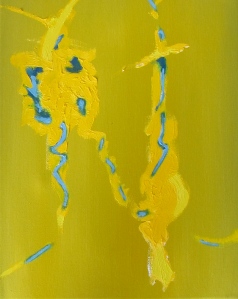WE ARE AGREEABLE creatures (generally speaking), and highly adaptable. Many in the traditional workplace — I numbered myself among them for two decades — lead happy, productive lives (I could not always say so, but that’s another story).
Happy or not, though, Monday through Friday, nine to five, is a strictly modern invention, an alien construct through most of human history, and it remains so in much of the contemporary, non-industrial world.
Our natural rhythms and tendencies are sacrificed to the demands of our jobs. Decisions about what and when we eat, groom, sleep, socialize, are all dictated by the workplace. Everything revolves around getting to work on time, at the “start” of the day, at the “beginning” of the week.
According to this view, work begins and ends within appointed hours. We even alter the birth dates of our cultural heroes — George Washington, Abraham Lincoln, Martin Luther King Jr. — to accommodate the weekly cycle.
This gives rise to a degradation of days; they gradually lose their freshness, and are assigned bland identities that reflect the unnaturalness of the standardized schedule. Certain weekdays take on permanent values that protest the rigid demands of the weekly grind.
(Even our personal identities are defined by work. We may be dedicated volunteers in our community, voracious readers, garden with passion, or ride our bicycles 200 miles a week. We may invest ourselves in that noblest of occupations: raising our children — one of the main reasons, in fact, many people accept the restrictive terms of the workplace. Yet when asked what we do, we invariably cite our salaried jobs.)
In this modern workplace, we either look backward or forward. We race through five days to get to two, and hate to give the latter up. The present is rarely seen as desirable.
Monday marks the dreaded end to the weekend.
Wednesday is an obstacle, something to get over. “Hump” day, a mild rebuke at the workplace’s compartmentalization of time, expresses a longing to be in some future time and place.
Friday spawns “TGIF,” acknowledging that much of the work around which we organize our lives lacks intrinsic meaning, or at least is in opposition to our heart’s desires.
Saturday, a different kind of work called “chores,” essential tasks like cleaning and shopping for food that make our living spaces habitable, with hopefully a little rest and recreation in between.
PEOPLE SOOTHE their psychic wounds, paper over the disconnect between their human heritage and their need to make money by spending much of it on material goods, or by living vicariously through the symbolic struggles of actors or athletes, mainlining the narcotic universes of television and the Internet.
I write this without malice or judgment, and I offer no solution to this conundrum. The world we have created requires this structure, though it leads to dissonance between our experience of work and the working of the mind.
The lucky ones find passion in their work, can function at a high level within the constraints of these artificial lines, or are doing things of tangible value.
For those less fortunate, subverting the random, diverse possibility of days to an endless, unyielding schedule produces a cynical form of resignation that in the worst cases induces torpor.








Lovely painting.
RE: productive lives
NOT. Only the autotrophs are productive!
Point well taken. Just trying to be positive!